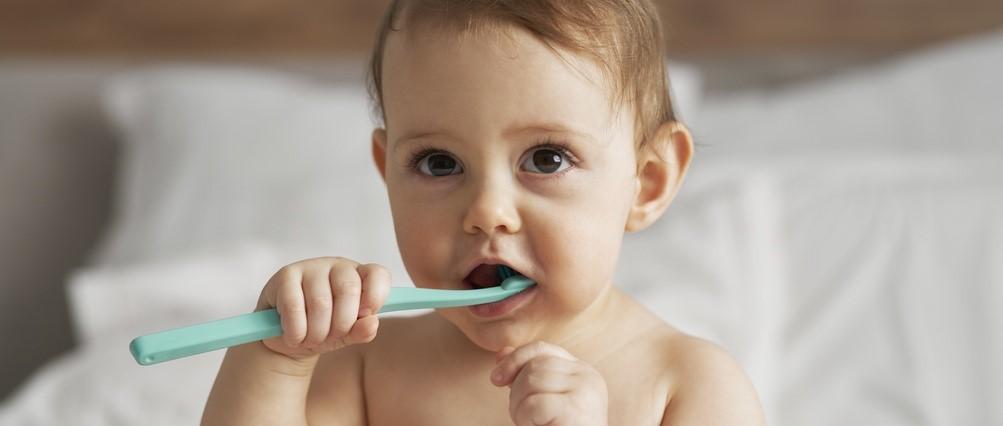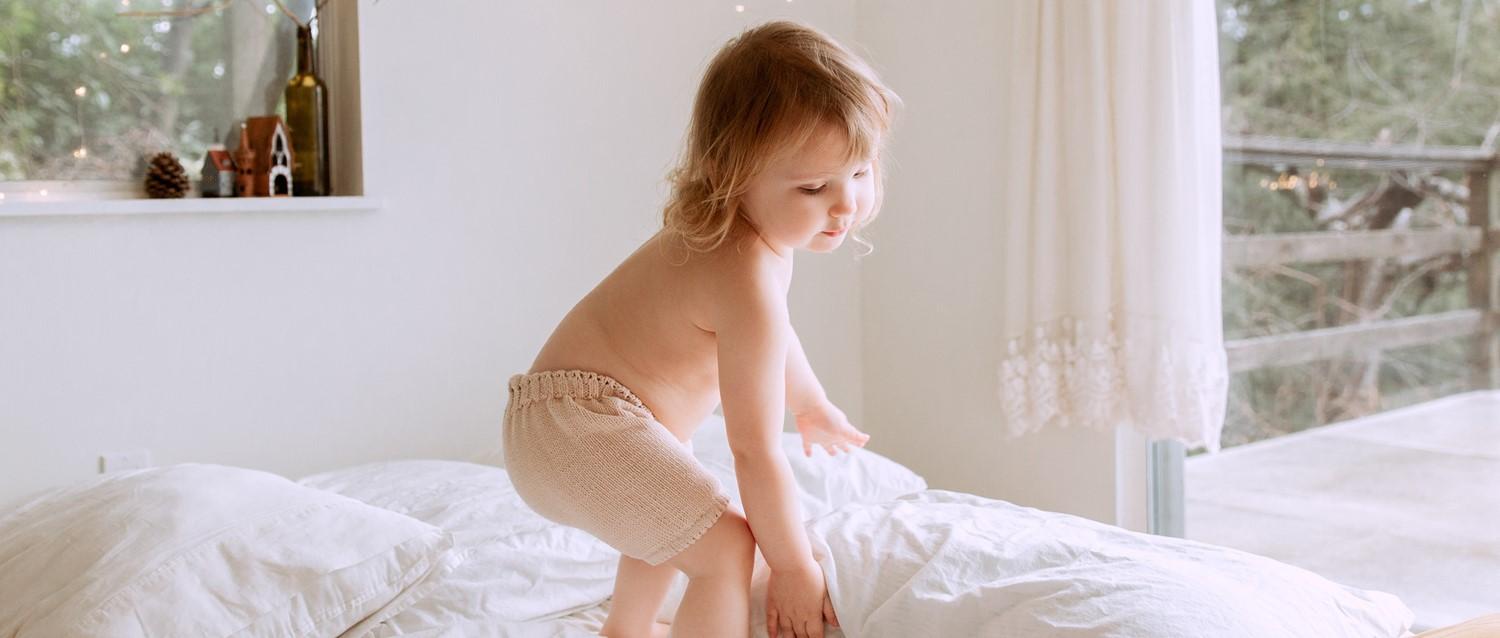
Cómo cuidar los primeros dientes de tu bebé
Peer reviewed by Dr Krishna Vakharia, MRCGPLast updated by Lydia SmithLast updated 5 Feb 2024
- DescargarDescargar
- Compartir
El temido periodo de dentición es difícil para muchos padres. La salida de los primeros dientes es dolorosa e incómoda para el bebé, puede ponerle de mal humor y perturbar su sueño. Pero, por desgracia, es una parte necesaria de su desarrollo. Y en cuanto aparece el primer diente, es hora de empezar a cuidar su salud bucal.
En este artículo:
February is Children's Dental Health Month. In 2023, an annual NHS report1 in England showed that:
56% of children were seen by an NHS dentist in the past 12 months.
This is below the pre-pandemic levels of 59%.
Children aged 0-4 years were seen the least - just 31%.
Seguir leyendo
Caring for your baby's first teeth
Karen Coates, a registered dental nurse and content specialist for the Oral Health Foundation, says: "Babies' teeth begin to erupt at around six months old and go on until they are around two and a half years old.
"As soon as your child’s first tooth comes through, you should start planning their first trip to the dentist. If it is started early enough it will feel more like a routine rather than something big and scary."
In the UK, you can sign your child up at your own NHS dentist, or search for one nearby. However, many dental clinics have long waiting lists. You can visit a private dentist, but you will have to pay for these check-ups.
People often think that baby teeth are not as important as adult teeth, but this isn't true. Baby teeth - also known as milk teeth - are essential for learning to speak and eat. They are important for the alignment and spacing of your baby's permanent adult teeth.
"There can be repercussions if they are not taken care of," says Coates. "This can be anything from pain for your child or impacting the adult teeth coming through properly, leading to misaligned teeth."
Selección de pacientes para Bebés y niños pequeños

Salud infantil
Toddler bedtime routine: how to get your child to sleep
Establishing a regular but flexible bedtime routine for your toddler is one of the best things you can do to resolve their sleep problems and create good sleep habits. Toddler bedtime routines that are calming, simple, and repetitive lead to many positive outcomes for both child and parent. If toddler tantrums at bedtime are an issue, there are steps you can take to help your little one feel calmer in the evenings.
por Amberley Davis

Salud infantil
Nariz tapada en bebés
It is common for babies aged under 6 months to have a blocked nose (commonly called 'snuffles'). It is usually due to normal mucus that collects in the nose, which is difficult for the baby to clear. No treatment is required if the baby is otherwise well and feeding well.
por la Dra. Hayley Willacy, FRCGP
When to start brushing your baby's teeth
You don't need to wait for your baby to have all their teeth before you start brushing them. As soon as they have one - which usually happens when they're around 6 months old - you can start making brushing a part of their routine. Use a toothbrush with a small head and soft bristles, or you could also try a finger toothbrush, which are normally made from silicone and sit on top of your finger.
For babies, it can help to sit them on your knee and support their head against your chest while you brush their teeth. The toothpaste should contain at least 1,000ppm of fluoride as this helps prevent and control decay.
Brush the teeth in small circles with a small smear of toothpaste and gradually build up how thoroughly you do it as they get used to the brush. You should brush their teeth twice a day - once before bed and any other time.
Seguir leyendo
What to do if your baby hates having their teeth brushed
If your baby hates having their teeth brushed and cries, here are some helpful tips to encourage them to tolerate it:
Don't panic - it's normal if they cry, so don't worry. Just stick with it and gradually work it into their routine.
Brush your teeth at the same time - seeing you do it may encourage them to copy you.
Let them hold the toothbrush - they might enjoy it more if they are in control. However, keep a close eye on them to avoid accidents. It's easy for a baby to push the toothbrush too far into their mouth, or to poke themselves in the eye.
Para saber más
Historia del artículo
La información de esta página ha sido revisada por médicos cualificados.
5 Feb 2024 | Latest version
23 Aug 2023 | Originally published
Autores:
Lydia Smith

Pregunte, comparta, conecte.
Explore debates, formule preguntas y comparta experiencias sobre cientos de temas de salud.

¿Se encuentra mal?
Evalúe sus síntomas en línea de forma gratuita